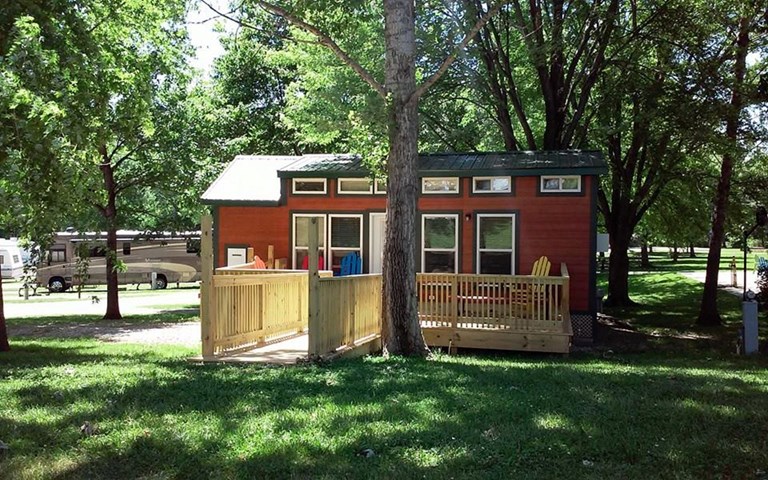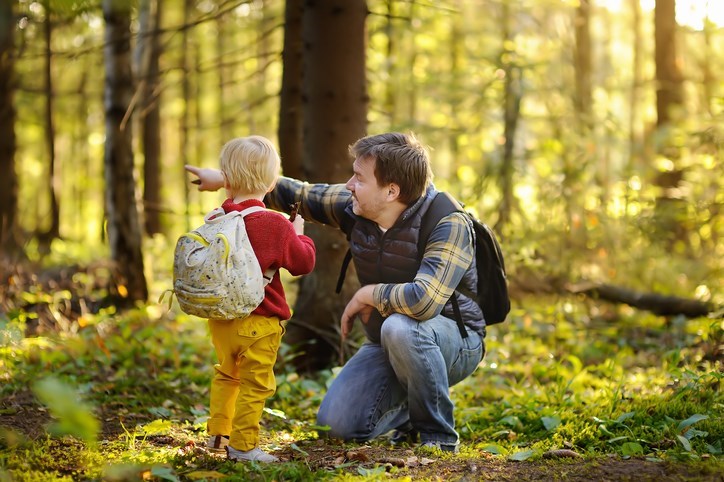Your cart is empty!
Make checkout easy by booking all your reservations at once. Add your sites from different campgrounds into your shopping cart* and then choose checkout.

We're Sorry!
Internet reservations are currently not available for this KOA: Newton / Des Moines East KOA Journey
Please call the campground directly to make your reservations at 1-641-792-2428. Thank you.

Reposted from the KOA blog:
Most people who love camping learned to do it with their family. They have fond memories of enjoying the outdoors, so when their own children come along, they want to create the same experience for them. But it can be intimidating to start camping with babies and toddlers. Are they ready for the experience? More importantly, are you ready? Camping with young kids is one of those things that’s most likely scarier in concept than execution. Most parents who camp with little ones enjoy the experience—that’s why they keep coming back for more.
That said, there are lots of things you can do to help make your camping with infants and toddlers go smoothly, especially on your first time out. One is to start with a campground filled with amenities, like a KOA. With nearly 500 campsites in North America, KOA features plenty of choices, and they’re all designed to create an environment where families can spend time together while enjoying the outdoors. They also provide clean bathrooms and a camp store to help with anything you left behind.
When you’re ready to give it a try, here are 10 tips to help you make the experience of camping with little littles better for all members of the family.
While you and your partner may have loved long camping trips as a couple, start small once you involve the kids for the first time. You never know how they’re going to react to their first camping overnighter. Planning a weekend trip will give everyone a taste of the experience, and if things don’t go as well as you’d hoped, you can leave early in the morning. This still allows you time to do some hiking, enjoy a campfire, and play outdoors.
Very young kids thrive on routine so bring along things from home that are normal and comforting for them. Babies probably won’t notice much of a difference, but toddlers will want to bring a favorite stuffed animal or toys that they love. Other suggestions include the plates and silverware that they typically use, a favorite sippy cup, blanket, pillow, or book. Including reminders of home can help them adjust to their new surroundings.
While adults are often content hiking, paddling, or fishing all day, kids don’t usually last that long and it helps to have a variety of options available to mix things up—playground, pool, game room, or other amenities.
If your child is still taking naps, remember to plan for those as well. Even if they rarely take naps at home, a day of playing outside can lead to tired kids. Think about planning some downtime during the day and see if it sticks.
Most campers with young kids rely on a Pack N Play for sleeping, and they do work very well. It’s nice that you can also take it outside the tent and give the really little ones a place to play safely during the day. Once the kids get a little bigger, an air mattress with a sleeping bag is a good option for kids. You may be willing to get by on a sleeping pad, but it’s usually not comfortable enough for the kids.
If you’re able, try spending a night in the backyard to give camping a dry run. See how everyone enjoys the accommodations before you commit to the trip. You may discover small things that make everyone more comfortable—and it’s nice to know that in advance. Of course, you could also forgo the tent and opt for Camping Cabin, which is offered at many KOAs as well.
Most experienced parents know that almost any meltdown can be settled with a good snack. Half the fun of camping is the food, so be sure to have a variety of easily accessible treats at the ready. Little pouches of goldfish crackers, fruit gummies, or nuts are easy to store and dole out as needed. Go ahead and splurge a bit with some favorites like chips and drink boxes—the goal is to keep kids happy and get them to enjoy camping, right?
Have you ever shared a two-person tent with someone? You really get to know your partner. Once kids come along, forget the weight of the tent (this isn’t backpacking) and focus on space, lots of it. If you can stand up, all the better. Have room for a Pack N Play or two while you and your partner can still stretch out on your sleeping bags. If your kid is crawling, consider bringing along a big mat or blanket that gives them some room to roam. For toddlers, a child-sized camping chair is a wonderful thing to have. They’ll be comfortable while eating or sitting around the fire—and they’re much more likely to stay there.
You probably didn’t think much about this before kids, but their addition means that you need to be a bit more careful about your camping surroundings. Kids love to put things in their mouths, so look for anything dangerous before you set up. Of course, it’s impossible to cover everything, but be on the lookout for any sharp sticks, rocks, or debris. Hopefully, the last camper did a good job tidying up, but you want to find any old cans, matches, or trash that may have been accidentally left behind. It’s amazing how good the kids are at finding that stuff.
How many diapers and wipes do you need for a camping trip? Wrong, you need more. OK, maybe you can figure out how many diapers to carry, but wipes are useful for so many things beyond changing. Your kids will constantly have messy hands—and having wipes handy makes camping easier. Throw an extra pack somewhere in your car in case you run out.
Toddlers love to show off how far they can walk, until they’re done. “Carry me” is a phrase parents understand all too well. Even if your child wants to start the hike on his or her own, it doesn’t take long for the hands to go up. Baby carriers make hiking a lot more enjoyable for everyone. With younger babies, front-style carriers free both hands as you walk while allowing you to keep a close eye on the little one. For older, bigger tots, a backpack carrier is an excellent option that also gives your child a better view of what’s going on.
If your kids use white noise to sleep at home, bring it along on the trip. You can find battery-powered devices or use an app on your phone. A good night’s sleep is the key to enjoying camping, so anything you have to help the process should be brought along. This includes favorite pillows and blankets, books, robes, slippers, stuffed animals, etc. There will be time enough when the kids are older to “rough it.” This trip is about introducing your kids to camping—it should be all about fun and comfort.
That doesn't mean this area has to always be empty. When you start reviewing camping options, your history will display here to help compare sites and find the best stay. You will be able to share your stay information with friends or family and save it for a later time if you have a KOA Account.
Make checkout easy by booking all your reservations at once. Add your sites from different campgrounds into your shopping cart* and then choose checkout.